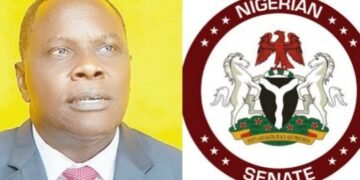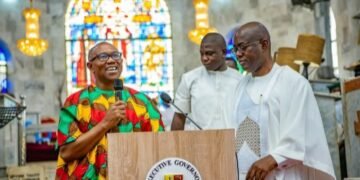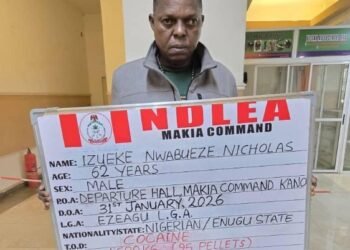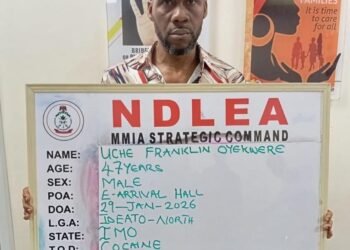Mallam Lanre Issa-Onilu, Director General of the National Orientation Agency (NOA), has disclosed that the Economic and Financial Crimes Commission (EFCC) recovered ₦566.3 billion, $411.6 million and 1,502 properties between 2023 and 2025.
These recoveries, he said, were made under the leadership of the incumbent chairman of the anti-corruption agency, Mr Ola Olukoyede.
This was as the NOA Director General said the Independent Corrupt Practices and Other Related Offences Commission (ICPC), last October, also recovered the sum of ₦840 million and $919,000.
Issa-Onilu further disclosed that about ₦100 billion recovered from corruption cases has been reinvested by the Federal Government into education, especially students’ loan, and consumer credit schemes.
He made the disclosures in Abuja while speaking at the October edition of the joint security press briefing — an inter-agency update on security, anti-corruption, and public communication.
The NOA DG, who gave updates on the performance of the country’s security and anti-corruption agencies in October, said there has been a marked improvement in inter-agency collaboration and measurable progress in transparency and accountability.
According to Issa-Onilu, EFCC, under the leadership of Olukoyede, recovered an estimated ₦566.3 billion and $411.6 million between 2023 and 2025, with 1,502 properties forfeited to the Federal Government.
Similarly, he said ICPC received 44 petitions in October, concluded 15 investigations, and secured two convictions, recovering ₦840 million and $919,000.
According to Issa-Onilu, part of these recoveries are now being channelled to fund reforms that directly impact ordinary Nigerians, particularly in education and access to credit.
The NOA DG said the reinvestment was a reflection of the commitment of the Federal Government to ensuring that funds recovered from corruption directly improve the lives of citizens through social and economic programmes.
“Every kobo recovered from corruption must work for the people — funding education, credit, and health reforms, rather than lying idle,” Issa-Onilu said.
He also spoke on security issues, saying: “The government acknowledges the sacrifices of our security forces and reaffirms that data-driven collaboration and citizen intelligence are central to sustaining national peace and safety,” he said.
He added that the government’s “whole-of-government” approach — integrating intelligence, enforcement, and civic participation — was helping to build trust and enhance transparency.
According to him, the proactive use of both human and digital intelligence strengthened security responses, leading to a reduction in fatalities from violent crimes across the country.
The NOA DG said October recorded a 12 per cent drop in fatalities, from 210 in September to 185, while arrest of major suspects rose by 33 per cent and rescue of abducted victims increased by 40 per cent.
Issa-Onilu said the National Agency for Food and Drug Administration and Control (NAFDAC) seized over 70 containers of counterfeit goods, while the National Drug Law Enforcement Agency (NDLEA) dismantled 14 drug syndicates, arrested 1,378 suspects, and secured 251 convictions.
According to him, the Nigeria Immigration Service (NIS) rescued 76 victims of human trafficking and processed 15,000 visa applications under its new digital system, while the Federal Road Safety Corps (FRSC) recorded 11 per cent reduction in fatal crashes.
Issa-Onilu said NOA reached about 32 million citizens between August and October through television, radio, and digital platforms to promote civic awareness, public accountability, and national unity.
“Accurate information saves lives; misinformation costs them,” he said, urging the people to verify information before sharing and to report suspicious activities to relevant authorities.




























